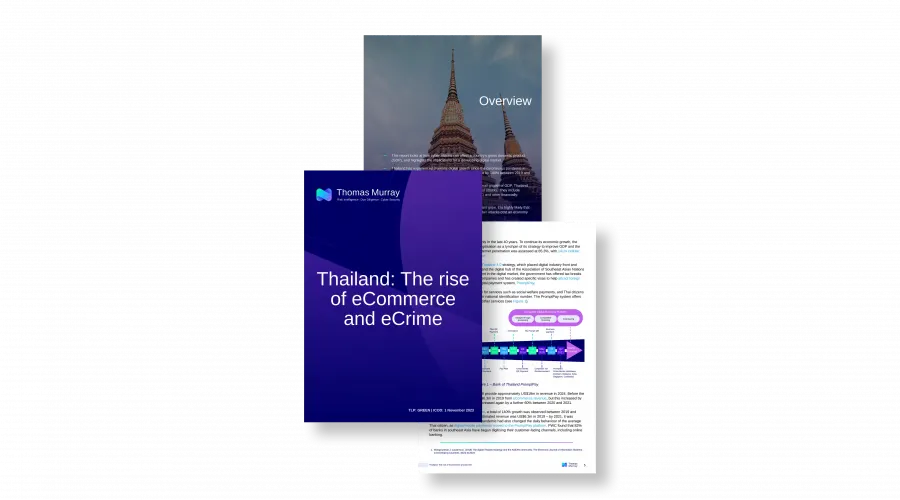
Stephen Green, Threat Intelligence Lead, draws on work by Thomas Murray's Analytics Lab to look at how cyber attacks can affect a country’s GDP. Using Thailand as a case study, he highlights the implications for a developing digital market.
Thailand has experienced dramatic digital growth since the coronavirus pandemic in 2020, but it has also suffered a significant increase in cyber-based attacks. These include phishing, ransomware, business email compromise (BEC) and other financially-motivated cyber attacks.
As the GDP and eCommerce markets of developing nations grow, it is highly likely that adversaries will increasingly target them. Stephen explains what lessons can be learned from Thailand's experience.
Fill out the form to download your copy
Insights

Ransomware at Europe’s Airports: Case for Community-Driven Third Party Risk Management
The recent ransomware attack on Collins Aerospace’s Muse software, which brought chaos to airports across Europe, serves as a stark reminder of a critical gap in how organisations approach Third Party Risk Management (TPRM).

JLR Cyber Attack: What it Means for Private Equity, Credit, and Equity Investments
From the iconic E-Type Jaguar to images of the late Queen driving modern Range Rovers on her estate, JLR has long held a uniquely British place in the national consciousness, even under Tata ownership. The incident has affected the owners of the business, the supply chain, and customers, and offers learnings for the Private Equity (PE) industry.

Impact of Cyber and Operational Resilience on Private Equity and Their Portfolio Companies
Implementing cyber and operational resilience measures is a strategic imperative for PE firms and their PortCos, enabling them to reduce the impact of cyber risks on asset valuations.

How Private Equity Leaders Turn Cyber Security Investment into Competitive Advantage
Leading firms are discovering something counterintuitive: investing in cyber security creates advantages worth far more than just protection.


